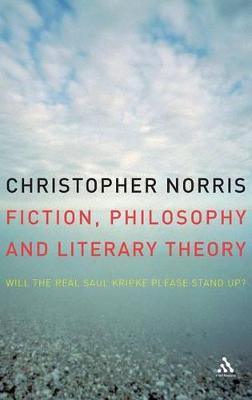This book brings together three main topics - deconstruction, philosophy of language, and literary theory - that have figured centrally in Christopher Norris' work over the past two decades. It offers a refreshingly clear and vigorous statement of his views as to how 'theory' might profit from a greater awareness of current philosophical debates while philosophy might likewise gain by adopting a more open-minded attitude toward developments in literary theory. Most significant here is Norris's continuing exploration of the various points of contact between Jacques Derrida's thought and the kinds of concern - especially with issues in philosophical semantics and speech-act theory - that have preoccupied thinkers in the 'other', mainstream-analytic line of descent. However, his focus is consistently on matters that should be of interest to philosophers and literary theorists alike.
Thus, Norris devotes some penetrating commentary to topics such as modal or 'possible-worlds' logic as it bears upon issues in narrative theory; the 'two cultures' (science versus literature) controversy; the different ways in which literary theory has alternately embraced and rejected the appeal to 'scientific' modes of analysis; and some possible reasons for Wittgenstein's well-known aversion to Shakespeare. He also suggests a novel approach to the free-will/determinism issue by way of debates about the nature of language and the scope it affords for expressive creativity despite - or owing to - the limits imposed by various structural constraints. Altogether, this important new book provides a welcome overview of the author's current thinking and an equally welcome enlargement of horizons in contrast to the narrowly specialised character of much present-day academic discourse.
- ISBN10 0826497551
- ISBN13 9780826497550
- Publish Date 28 June 2007
- Publish Status Active
- Publish Country GB
- Publisher Bloomsbury Publishing PLC
- Imprint Continuum International Publishing Group Ltd.
- Format Hardcover
- Pages 272
- Language English
